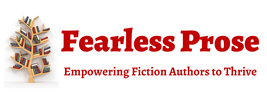First chapters are POWERFULFirst chapters are POWERFUL. They can stop a shopper from casually flicking through the pages to see how the story ends and a publisher from tossing it in the slush pile bin. Readers are searching for a story beginning that grabs their attention, surprises them and makes them curious to the point of desperation to know what will happen next. But how can you possibly do this in such a short space? In short, provide entertainment! And if you’ve maintained their interest to the end of the first chapter, then hopefully they’ll decide if it’s is worth investing their time and money to continue. Responsibilities of a first chapterEvery chapter has basic storytelling requirements to fulfil, like an opening and closing hook, character development, having a goal and conflict. The same goes for first chapters but they also carry the weight of additional responsibilities. They have to:
Provide story contextNo story starts at the beginning of a character’s life and tells every single thing that happens until they die; there just isn’t space. You are telling one part of someone’s life, which is specific to a particular goal they are trying to achieve. (Or one era of a civilisation, which is important to its survival or identity.) Therefore, you need to provide the reader with the context of the story early on, so they understand what’s going on, e.g.:
Pique the reader's curiosityThe ability to convince readers to stick around for the length of an entire novel relies on being able to engage them during the first chapter. To do this you need to make them care about (or at least be interested in) the characters and their immediate situation. You do this by piquing their curiosity. One part of this is to raise questions the reader wants answered and this means dropping hints that things are not right in the world of your characters. There is nothing readers love more than puzzling out what drives characters. In truth, it’s a way of making sense of the world around us and the people who inhabit it. So, hint at what is missing from your character’s life, what struggles they are facing initially or what they are dreading in the future. Here are some examples from the very first page of my book Inheriting Fear.
All of these are hints of information that intrigue the reader and raise questions that will keep them reading. This leads us to the second part of piquing a reader’s curiosity, which is evoking an emotional reaction from them. You can accomplish this by creating a vivid, textured world they feel a part of, making them care, sympathise or at least be interested in the character, and giving that character something significant to lose. The anticipation of curiosity and the anxiety of uncertainty is a powerful potion to hook readers in so they can’t put the story down. Genre expectationsReaders have certain expectations of their favourite genres and you ignore them at your own peril. For example:
First chapter cautionOne of the worst mistakes authors make in first chapters is to dump information in a passive way. Keep in mind that you don’t have to spell everything out right away — in fact it’s usually better if you only hint at many elements early on and then gradually build on the information throughout the story. Plus, keeping characters in action and with other characters provides plenty of opportunities for interesting showing of information.
What Next? We’ve explored what a first chapter needs to achieve in order to grab a reader’s attention, and looked at how to do that by laying a solid foundation of critical information, evoking emotions and raising the reader’s curiosity. If you’d like to delve deeper into your first chapter to make sure it will reel readers and publishers in and survive scrutiny, then join Sandy Vaile for the next Fantastic First Pages workshop.
2 Comments
Sandy Vaile
3/10/2021 04:46:11 pm
Glad to help, Barbara. Story beginnings can be tricky.
Reply
Your comment will be posted after it is approved.
Leave a Reply. |
Fearless ProseEmpowering aspiring authors to confidently write novels they're proud to publish Categories
All
Archives
May 2024
|
© Sandy Vaile 2012-2024 |
Contact and Privacy Policy - About Sandy |




 RSS Feed
RSS Feed